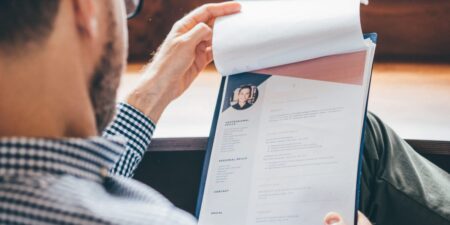President Donald Trump’s tariffs may face their final fate at the Supreme Court soon.
Two Illinois-based educational toy companies filed an emergency request Tuesday asking the Supreme Court to take up their case as soon as possible, rather than letting it continue to play out in lower courts since “it will inevitably fall to this Court to resolve it definitively.”
Toy companies Learning Resources and hand2mind filed an initial suit on April 22, challenging Trump’s use of the International Emergency Economic Powers Act to impose tariffs without going through Congress.
“For months, we’ve had dozens of people working full-time or part-time on addressing all aspects of the tariffs — you can hardly imagine anything more disruptive,” Rick Woldenberg, CEO of Learning Resources, told Business Insider. “This is an emergency, and so time is of the essence.”
The IEEPA tariffs have thus far been ruled unlawful by both the US District Court in the District of Columbia and the Court of International Trade on different grounds in separate lawsuits, including Woldenberg’s case filed in Washington, DC. But in both instances, the Court of Appeals has stayed the injunction on the tariffs.
“In light of the tariffs’ massive impact on virtually every business and consumer across the Nation, and the unremitting whiplash caused by the unfettered tariffing power the President claims, challenges to the IEEPA tariffs cannot await the normal appellate process,” wrote Pratik A. Shah, the lawyer for the case, in the petition to the Supreme Court.
Learning Resources and hand2mind are not the only businesses to have sued over Trump’s tariffs. At least two similar lawsuits, one from a small women-owned business in Florida and the other from five owner-run businesses across various states, are facing similar court proceedings. Neither has thus far appealed to the Supreme Court, as their cases are also stayed by federal appeals courts.
The lawsuits share the common argument that Trump has overstepped his authority by imposing tariffs under IEEPA, a law they said does not give the president unilateral power to impose trade duties.
The toy companies are specifically suing over Trump’s 10% baseline tariff on most imports and an additional 20% tariff on Chinese goods, which the president said were responses to national security concerns and drug trafficking.
“There are no rules, we don’t know what our costs are, and we are generally given 36 hours of advance notice to change how we operate our business,” Woldenberg said. “We have to dismantle a 40-year-old supply chain. There are tremendous amounts of costs associated with that which are not recoverable in any way, shape, or form.”
It is uncommon for the Supreme Court to intervene before a lower court rules, and the Court’s next term starts in October.
Data show businesses and consumers are feeling the impacts of the tariffs. In the month of May, retail and food services sales faced a larger drop than economists had expected, down 0.9% compared to April. The National Association of Home Builders Housing Market Index also shows worse sentiment for June than Bloomberg experts had expected, at just 32 points. A score above 50 is generally considered a favorable outlook on home sales.
The White House did not immediately respond to a request for comments.
Read the full article here
















